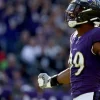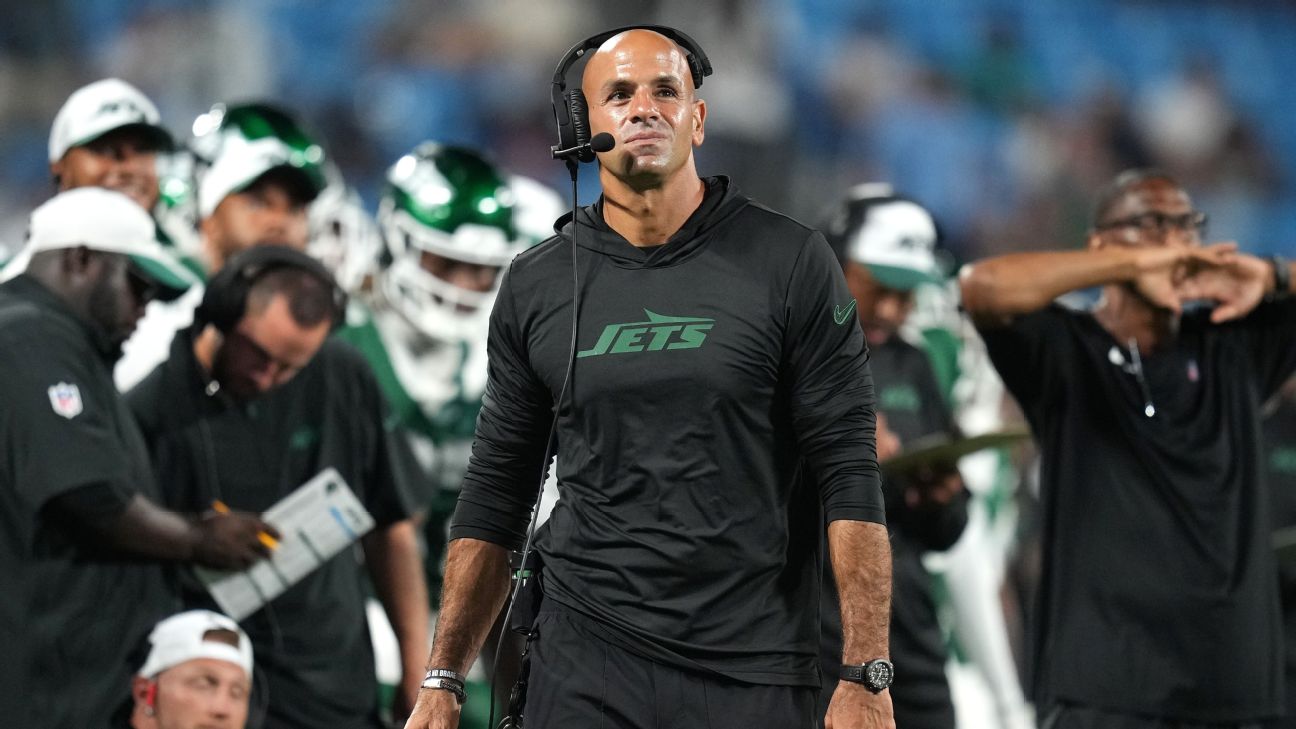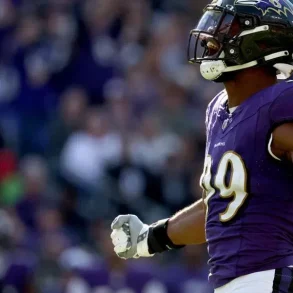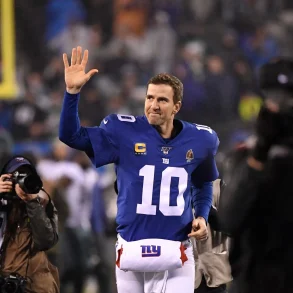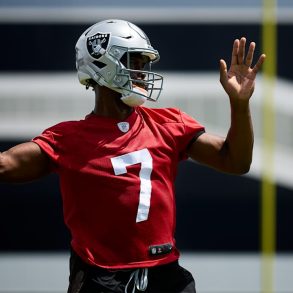The New York Jets are currently facing significant turmoil, which began on October 8 when owner Woody Johnson abruptly fired head coach Robert Saleh after a brief meeting. This move marked the start of a chaotic 20-day period for the team, culminating in a series of disheartening losses, including a last-minute defeat against the New England Patriots. Interim coach Jeff Ulbrich expressed deep concern for his team’s morale, emphasizing that their ongoing five-game losing streak should be viewed as a “moment of darkness,” not an enduring failure.
In an attempt to turn around their fortunes, the Jets made several major changes, including demoting offensive coordinator Nathaniel Hackett, trading for star wide receiver Davante Adams, and resolving a contract holdout with edge rusher Haason Reddick. Despite these efforts, the team has struggled, with Johnson expressing frustration at the need for drastic measures to shake up a roster he believes is one of the most talented in Jets history. However, as the losses continued, questions emerged about whether these decisions would lead the Jets to playoff contention or further derail their season.
The Jets have faced criticism from analysts and former players regarding Johnson’s decision-making process. Bill Belichick, former head coach of the Patriots, questioned the rationale behind the Jets’ midseason changes, implying that they seemed disjointed and counterproductive. There is a growing concern that Johnson’s actions may have upset the team’s core dynamics rather than energizing them. Although no players have openly criticized the coaching change, reports suggest that some have been unsettled by the abrupt transition.
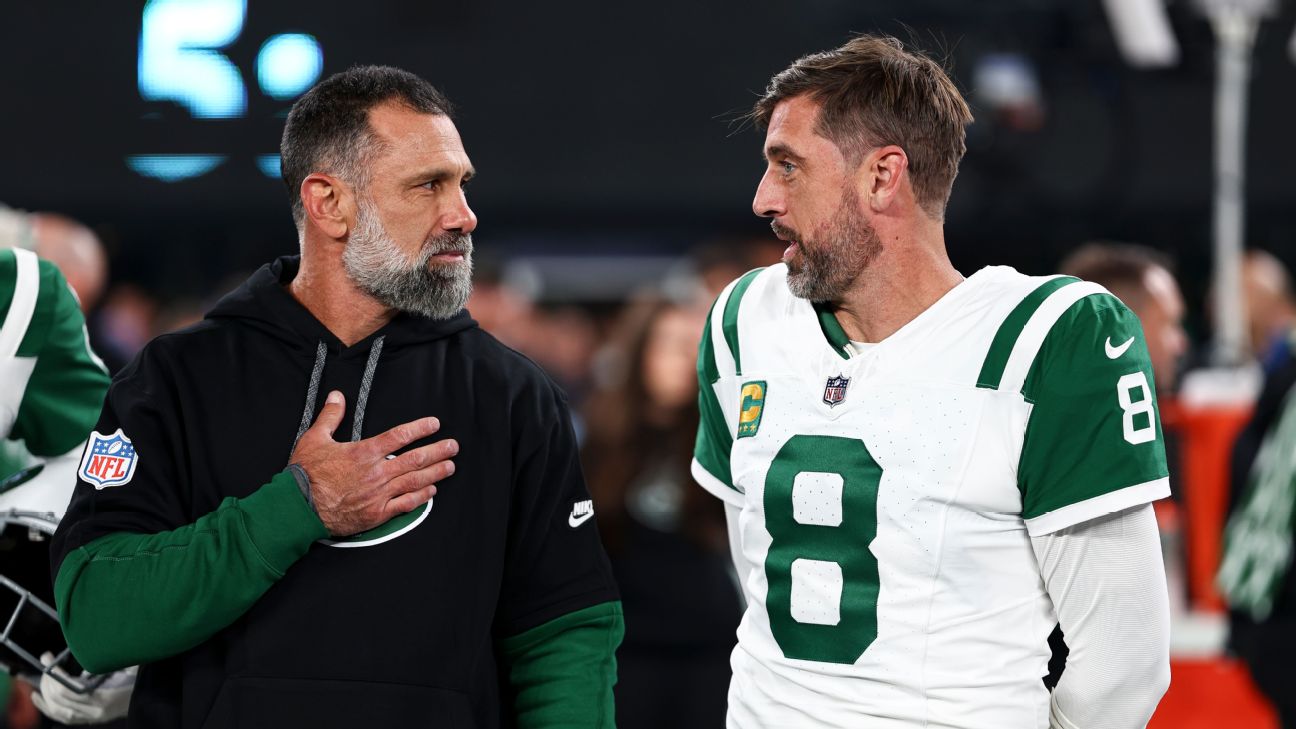
As interim coach, Ulbrich has taken on significant responsibilities, including calling defensive plays, while also managing the overall game strategy. This dual role raises concerns about whether he can effectively handle both duties, especially in light of the team’s poor performance. The Jets’ defense has notably faltered since Saleh’s departure, going from one of the league’s top units to a middle-tier performance, highlighting the potential negative impacts of the coaching shakeup.
Miscommunication has also plagued the Jets in critical game moments, exemplified during a crucial 2-point conversion attempt against the Patriots that resulted in a delay of game penalty. The situation reflected a lack of cohesion and clarity, with quarterback Aaron Rodgers and Ulbrich struggling to synchronize their strategies. Following the loss, Rodgers addressed the team, emphasizing the need for change and urging players to focus on solutions rather than assigning blame.
The Jets are now at a crossroads, facing a daunting challenge as they prepare for an upcoming game against the Houston Texans. Historically, the Jets have encountered similar situations, with past teams managing to turn their seasons around despite dismal starts. However, the current team is grappling with instability following the in-season coaching change, a stark contrast to previous years of relative continuity.
Critics have drawn parallels between the Jets’ current predicament and past NFL teams that failed to live up to expectations despite star-studded rosters, such as the 2011 Philadelphia Eagles. These comparisons underscore the necessity of a strong team culture and shared commitment among players, which seems to be lacking in the Jets’ locker room. The addition of high-profile players like Rodgers and Adams has not yet translated into the expected results, leading to skepticism about their impact on team dynamics.
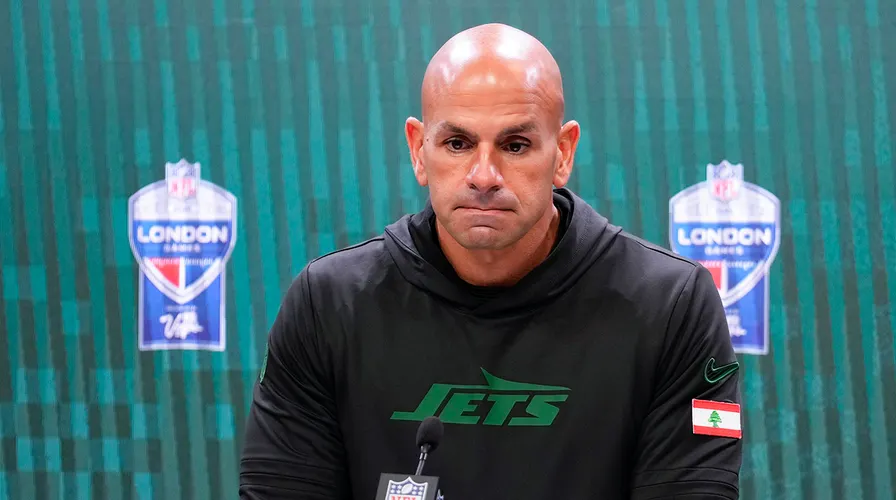
With a playoff probability hovering around 10.5%, the Jets’ future appears bleak unless they can quickly reverse their fortunes. The pressure is mounting as they approach the November 5 trade deadline, prompting speculation about whether they will abandon their “win now” strategy in favor of rebuilding for the future. The dichotomy between their short-term ambitions and the reality of their performance creates an urgent need for decisive leadership.
Despite the turmoil, some players believe in the potential for a turnaround. Cornerback D.J. Reed acknowledged the team’s talent and expressed hope for improvement, suggesting that the Jets still possess the ability to turn the season around. However, the underlying issues of management and team cohesion continue to cast a shadow over their prospects.
As the Jets navigate this challenging phase, they are confronted with critical decisions that could shape the franchise’s future. If they succumb to another loss against the Texans, they may be forced to reconsider their approach for the remainder of the season, potentially setting the stage for significant changes in the offseason. The Jets’ current situation exemplifies the complex dynamics of professional sports, where high expectations often collide with the harsh realities of performance and leadership challenges.
